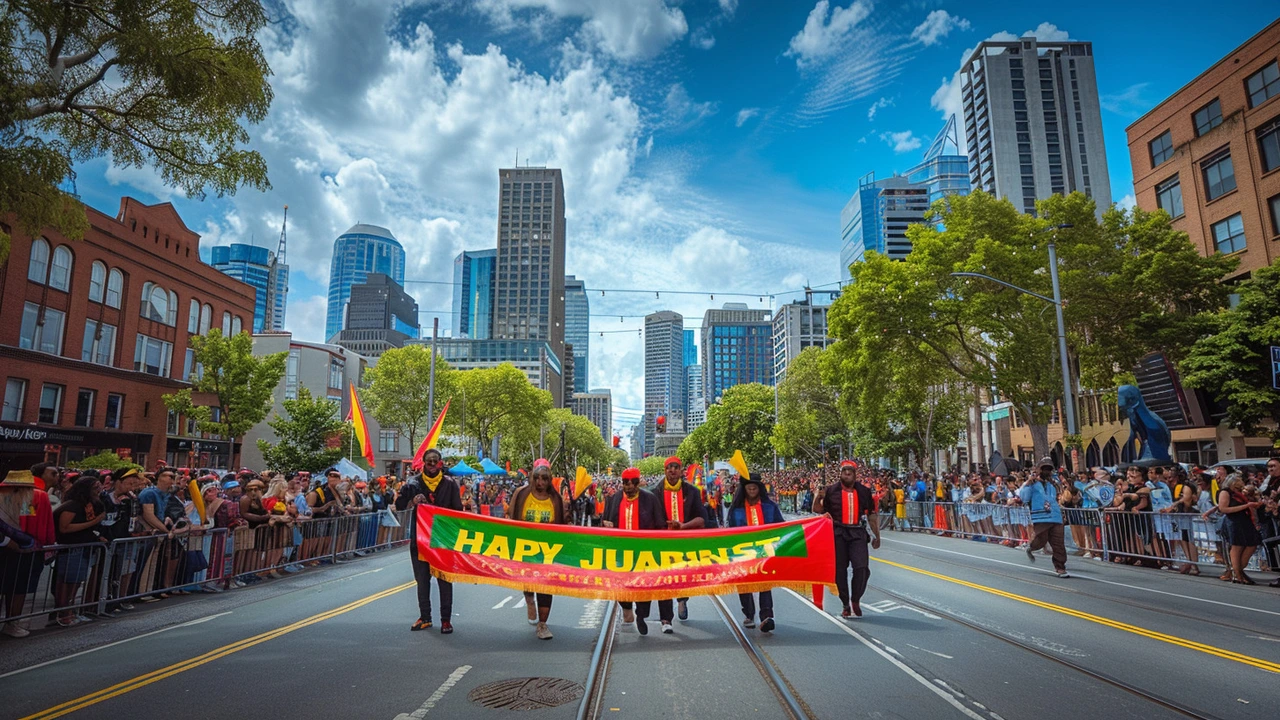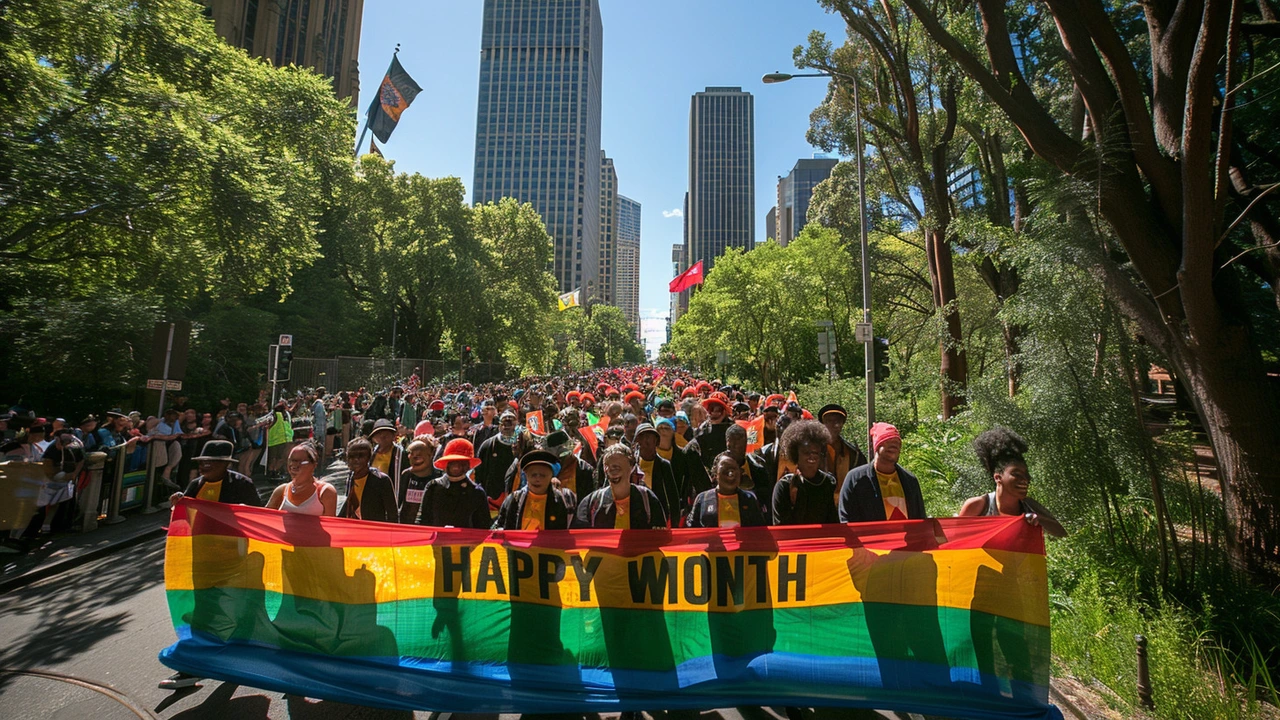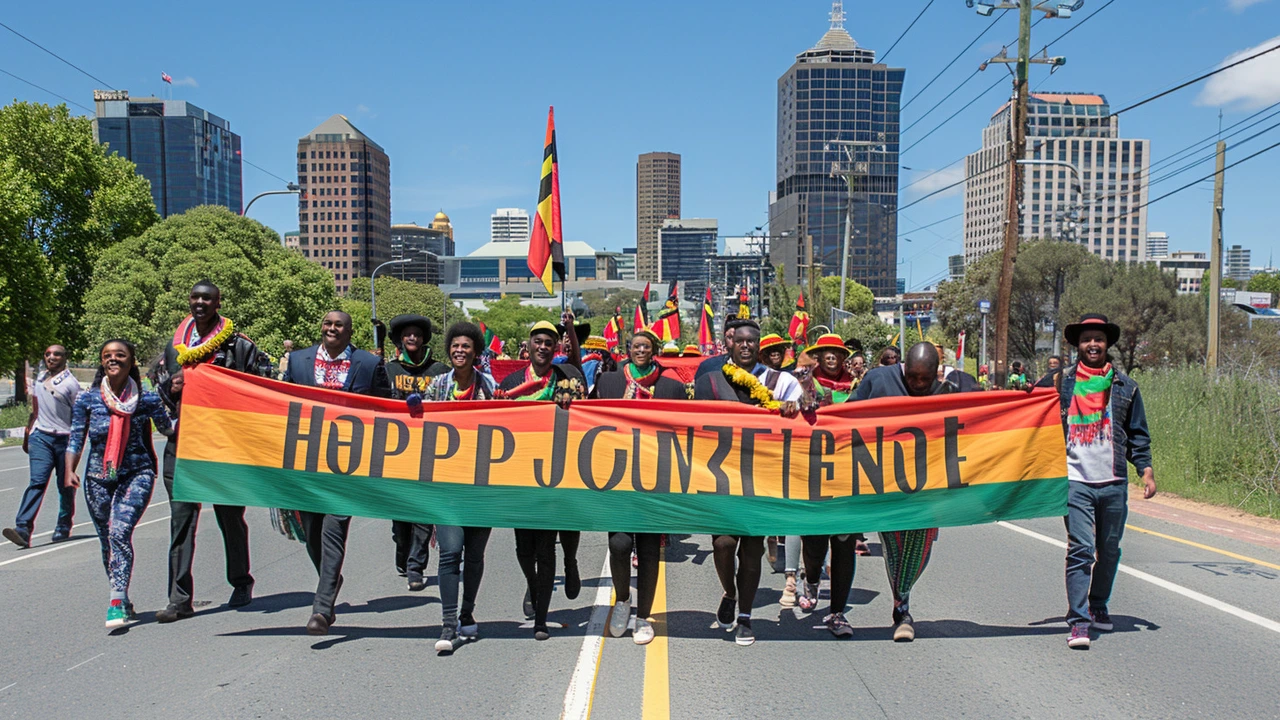Introduction to Juneteenth
Each year, on June 19, Americans across the nation come together to commemorate Juneteenth, a day that marks a pivotal moment in the history of the United States. This day is not just another holiday but a deep reminder of the long and arduous journey towards freedom for African Americans. The origins of Juneteenth date back to 1865, more than two years after the Emancipation Proclamation was signed by President Abraham Lincoln. This proclamation declared that all enslaved individuals in Confederate states were to be set free. However, it took time for this message to reach the far corners of the Confederacy, particularly Texas.
The Significance of Juneteenth
On June 19, 1865, in Galveston, Texas, Major General Gordon Granger and his Union soldiers arrived to deliver the long-awaited news that slavery had been abolished. This day marked the freedom of over 250,000 enslaved Black people in Texas, who had remained in bondage for two and a half years after the emancipation order. The announcement brought joy, relief, and a sense of newfound freedom to thousands. This day, originally called 'Jubilee Day', would come to be known as Juneteenth, a combination of 'June' and 'nineteenth'. It has since evolved into a powerful symbol of the end of slavery in the U.S. and a broader celebration of African American culture and heritage.
The Delay After the Emancipation Proclamation
To fully understand the importance of Juneteenth, one must look back at the circumstances surrounding the Emancipation Proclamation. Signed on January 1, 1863, this executive order by President Lincoln was primarily a war measure aimed at weakening the Confederacy. While it declared all enslaved people in Confederate states to be free, it had limited immediate effect because the Union did not yet have control over these regions. The Confederate states resisted, and without Union troops to enforce the proclamation, many enslaved individuals remained unaware or unable to act on their newfound freedom. Texas, the most remote of the slave-holding states and with a minimal Union presence, was one of the last holdouts, which is why it took so long for the news to reach Galveston.

The Role of the 13th Amendment
While Juneteenth marks the day when many enslaved people in Texas learned of their freedom, the official abolishment of slavery in the United States would not be realized until later that year. The 13th Amendment to the U.S. Constitution, which formally abolished slavery in all states, was ratified in December 1865. This legislative action ensured that slavery was illegal nationwide and provided a legal framework to underpin the freedoms that Juneteenth celebrates. The amendment was a significant step, but it was the announcement on June 19 that lives on in the cultural memory as a day of liberation.
Celebrations and Traditions
From its early inception in Texas, Juneteenth celebrations have grown and evolved significantly. Today, the holiday is recognized not only in Texas but across the United States, with events and festivities that reflect its rich cultural heritage. Communities engage in a variety of activities to honor the day, from parades and street fairs to educational workshops and concerts. Food, especially barbecue and traditional African American cuisine, plays a central role in the celebrations, symbolizing unity and shared heritage. Many events also feature performances of music and dance, artistic displays, and readings of the Emancipation Proclamation to remind attendees of the historical significance of the day.
Juneteenth Becomes a Federal Holiday
Calls for Juneteenth to be recognized as a federal holiday had been ongoing for many years. One of the most vocal advocates was Opal Lee, often referred to as the 'Grandmother of Juneteenth'. Her tireless efforts, which included a walk from Fort Worth, Texas, to Washington D.C., played a crucial role in raising awareness and garnering support for the cause. In 2021, these efforts culminated in success when Congress passed a bill almost unanimously, and President Joe Biden signed it into law on June 17, officially making Juneteenth a federal holiday. This recognition not only highlighted the significance of the day but also served as a national acknowledgment of the struggles and resilience of African Americans throughout history.

Juneteenth: A Day of Reflection and Education
Beyond the festivities, Juneteenth serves as a time for reflection and education. Many communities use the day to engage in deeper conversations about the history of slavery, the ongoing legacy of systemic racism, and the continuous fight for civil rights and equality in America. Educational activities, such as panel discussions, lectures, and museum exhibits, provide an opportunity for people to learn and understand more about this critical part of American history. By acknowledging the past, Juneteenth encourages a collective commitment to building a more equitable future for all.
The Broader Impact of Juneteenth
The celebration of Juneteenth goes beyond commemorating a historical event; it represents a broader and more inclusive notion of freedom. As Opal Lee and many others have emphasized, Juneteenth is not just a day for African Americans but for all Americans who believe in the principles of freedom and justice. The holiday serves as a reminder that the fight for freedom is ongoing and that vigilance is necessary to protect and uphold the rights of all individuals. By fostering a deeper understanding of the past and encouraging collective observance, Juneteenth plays a critical role in promoting unity and fostering a shared sense of history and purpose.
Conclusion
Juneteenth is a powerful symbol of liberation and a testament to the strength and resilience of those who have fought for freedom and equality in the face of great adversity. From its roots in Galveston, Texas, to its recognition as a federal holiday, the significance of Juneteenth continues to resonate deeply. The day serves not only as a celebration of emancipation but also as a call to action to confront and address the ongoing issues of racial inequality and injustice in our society. As Americans come together each year to honor this important day, they carry forward the legacy of those who endured and overcame, ensuring that the lessons of Juneteenth remain vibrant and relevant for future generations.







13 Comments
Juneteenth is a pivotal chapter in American history that deserves refined appreciation.
The tapestry of Juneteenth weaves together threads of resilience and the bitter taste of delayed liberty, reminding us that emancipation is not merely a legal decree but a living, breathing struggle.
Yet some still argue it is just another holiday, glossing over the arduous march from proclamation to actual freedom.
Behold! The annals of June 19, 1865, stand as a beacon of moral rectitude!!!
We must condemn the complacency of those who allowed two more years of bondage to fester under the guise of wartime expediency!!!
Sure, another day on the calendar, nothing special, right?
We must seize this moment to rally together, to honor the ancestors, and to demand that the promise of freedom be actualized for every citizen, lest we betray the very spirit of Juneteenth.
It is imperative that we, as a collective, harness the inspirational legacy of Juneteenth to motivate proactive civic engagement and foster a culture of inclusivity across all strata of society.
Juneteenth serves as a cultural fulcrum, levered by the profound philosophy that liberty, once ignited, cannot be extinguished; we must therefore champion its remembrance with unwavering resolve.
What a beautiful reminder of hope and progress! 😊 Let's keep the spirit alive with community gatherings and smiles.
From a sociopolitical perspective, Juneteenth encapsulates a critical inflection point wherein the interplay of legislative frameworks, such as the Emancipation Proclamation and subsequent 13th Amendment, intersected with grassroots mobilization to effectuate systemic transformation.
Historically, the latency between proclamation and actual emancipation in Texas underscores the structural inefficiencies inherent in top‑down policy enactments absent sufficient enforcement mechanisms.
Contemporary scholarship emphasizes that the collective memory of such delay informs current discourses on institutional accountability and restorative justice.
Moreover, the codification of Juneteenth as a federal holiday signifies a normative shift, embedding the narrative of liberation within the national zeitgeist.
Fiscal analyses reveal that holiday recognition engenders measurable economic activity through increased tourism, hospitality services, and cultural commerce.
Parallelly, educational institutions leverage this observance to integrate curricula that foreground African American historiography, thereby enriching epistemological diversity.
From a civil rights lens, the commemoration acts as both a reminder of past inequities and a catalyst for ongoing advocacy against systemic racism.
Policy analysts argue that the symbolic weight of Juneteenth can precipitate legislative momentum for broader reforms, including voting rights protections and criminal justice overhaul.
In the realm of public health, community gatherings associated with Juneteenth offer platforms for disseminating health equity initiatives, targeting disparities that trace back to historical oppression.
From a media studies standpoint, the amplification of Juneteenth narratives across digital ecosystems illustrates the democratization of historical storytelling.
Furthermore, the role of cultural ambassadors, epitomized by figures like Opal Lee, exemplifies the power of sustained civil engagement to reshape federal policy.
Interdisciplinary research suggests that the ritualistic aspects-music, cuisine, oral histories-function as vehicles for intergenerational knowledge transmission.
Economic modeling predicts that the institutionalization of Juneteenth will accrue long‑term dividends in social cohesion metrics.
In conclusion, Juneteenth operates as a multidimensional construct: a historical datum, a contemporary catalyst, and a future‑oriented platform for equity.
While celebrations are welcome, we must not lose sight of the moral imperative to confront ongoing racial injustices that persist beyond a single day of festivity.
Reading this reminded me how vital it is to keep these stories alive; thanks for the thorough overview! 😊
Juneteenth stands as a testament to resilience and the continuing quest for equity.
Indeed, the extensive analytical dissection presented above showcases the profound layers of historical, sociopolitical, and economic significance embedded within Juneteenth!!!